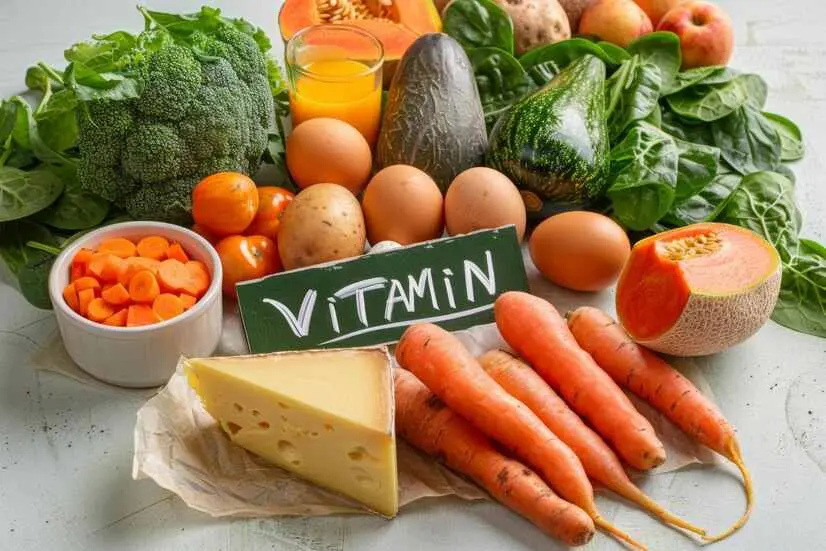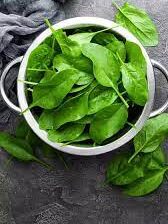
Foods That Hinder the Absorption of Vitamin D: What You Need to Know
May 30, 2025 UncategorizedVitamin D plays a critical role in maintaining healthy bones, supporting the immune system, and regulating mood. While the body produces vitamin D through sunlight exposure, many people also rely on food and supplements to meet their daily needs. However, what many don’t realize is that certain foods and dietary habits can actually interfere with the absorption of this vital nutrient.
If you’re making an effort to get enough vitamin D but still falling short, your diet might be part of the problem. Here are some common foods and ingredients that can hinder vitamin D absorption — and how to work around them for optimal health.
1. High-Fiber Foods (In Excess)
While fiber is essential for digestive health, excessive intake — especially from bran cereals, whole grains, and raw vegetables — can impair the absorption of fat-soluble vitamins like vitamin D. Fiber binds to fats and bile acids in the digestive tract, which can prevent vitamin D from being absorbed efficiently.
Tip: Balance is key. Don’t eliminate fiber, but avoid extremely high-fiber meals when taking vitamin D supplements or eating D-rich foods.

2. Oxalate-Rich Foods
Certain foods like spinach, beet greens, and rhubarb are high in oxalates, compounds that bind with calcium and reduce its absorption. Since vitamin D works closely with calcium to strengthen bones, a diet high in oxalates can indirectly reduce the effectiveness of vitamin D by lowering calcium availability.
Tip: Rotate your greens. Try kale, broccoli, or bok choy, which are lower in oxalates but still rich in nutrients.
3. Highly Processed Foods
Foods that are heavily processed — including fast food, packaged snacks, and sugary baked goods — are not just low in nutrients but can also impair vitamin D metabolism. They often contain trans fats and excessive sugar, which contribute to inflammation and disrupt the enzymes involved in vitamin D conversion in the liver and kidneys.
Tip: Minimize ultra-processed foods in favor of whole, nutrient-dense options like lean meats, legumes, fruits, and vegetables.
4. Alcohol
Chronic alcohol consumption can damage the liver, which plays a critical role in converting vitamin D into its active form. Heavy drinking also interferes with the pancreas’s ability to produce enzymes that aid in fat absorption, further reducing vitamin D uptake.
Tip: If you drink, do so in moderation. Try to avoid consuming alcohol around the same time as taking vitamin D supplements.
5. Caffeinated Beverages
Caffeine, especially in large amounts, can interfere with vitamin D receptors, reducing its effectiveness in the body. Some studies suggest that high caffeine intake may also lead to increased calcium excretion, which can indirectly impact vitamin D’s role in bone health.
Tip: Limit caffeine to 2–3 cups of coffee per day, and avoid pairing caffeine with vitamin D supplements.
6. Phosphorus-Rich Foods (in Excess)
Processed meats, sodas (especially colas), and some dairy products contain high levels of phosphorus, which competes with calcium in the body. When calcium levels drop, the body uses more vitamin D to try to compensate, potentially leading to a depletion of stores.
Tip: Avoid frequent consumption of phosphorus-heavy processed foods, especially soft drinks and convenience meats.
7. Magnesium Deficiency (Linked to Diet)

Though not a specific food, diets low in magnesium can hinder vitamin D absorption. Magnesium is necessary for activating vitamin D, and without adequate levels, even high doses of the vitamin may remain inactive in the body. Processed foods, poor soil quality, and low intake of nuts, seeds, and leafy greens can all lead to magnesium deficiency.
Tip: Add magnesium-rich foods like almonds, spinach, pumpkin seeds, and avocados to your diet.
8. Fat-Free or Low-Fat Foods
Vitamin D is a fat-soluble vitamin, which means it needs dietary fat to be properly absorbed. Choosing fat-free or very low-fat dairy, yogurts, or cooking methods (like steaming without oil) when consuming vitamin D-rich foods may reduce its bioavailability.
Tip: Pair vitamin D-rich meals with healthy fats like olive oil, eggs, or fatty fish to boost absorption.
Final Thoughts
Getting enough vitamin D is about more than just sun exposure and supplements — your overall diet matters too. Certain foods and habits can reduce how much vitamin D your body absorbs and uses, which may lead to deficiencies over time even if you’re consuming adequate amounts.
By limiting these interfering foods, eating a balanced diet rich in healthy fats and minerals, and being mindful of your lifestyle, you can support your body in getting the most out of every drop of vitamin D.
